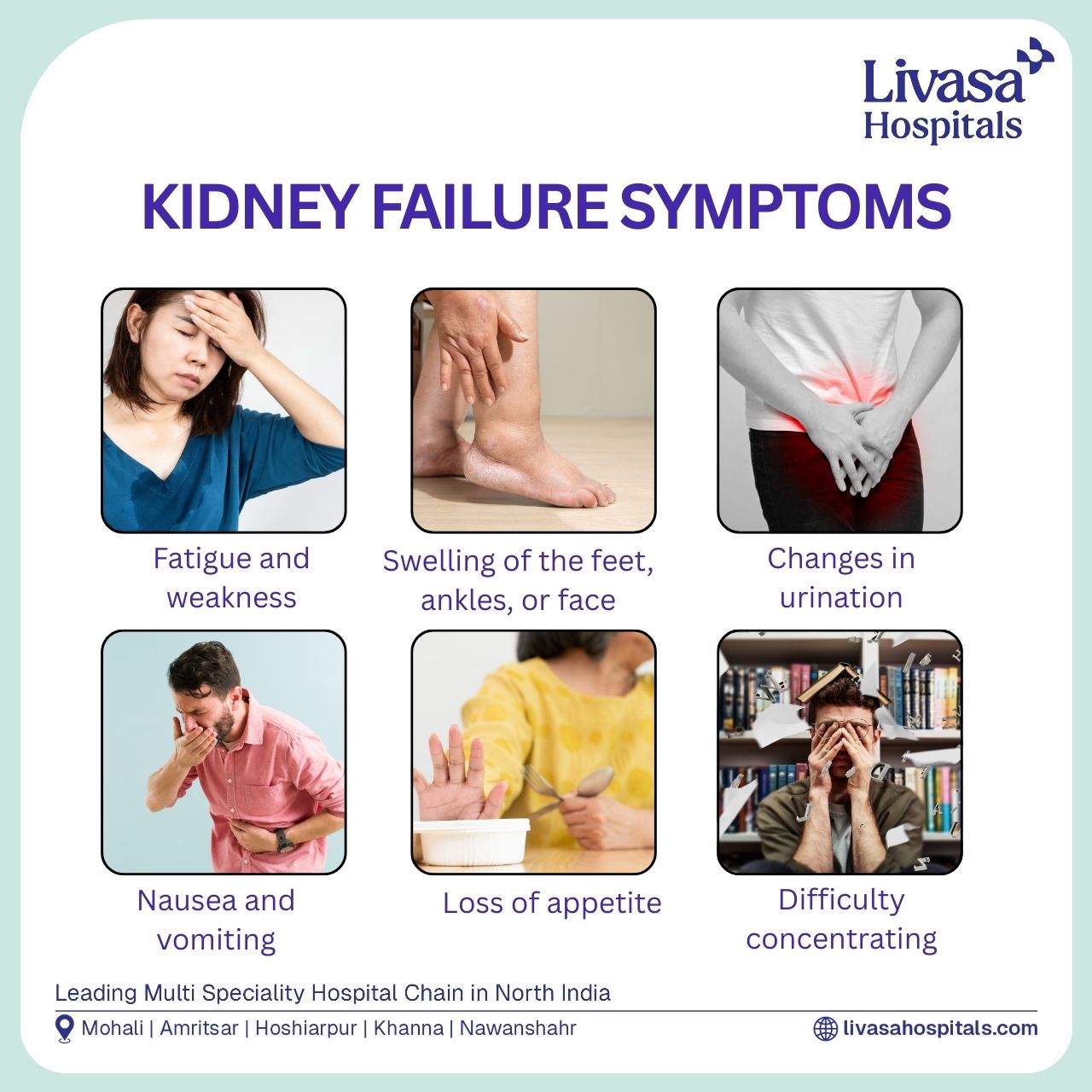03 Feb 2026
Rhinoplasty Revision Surgery in Mohali: Cost When Your First Nose Job Fails

Dr. Raka Kaushal
22 May 2025
Call +91 80788 80788 to request an appointment.
Kidney failure, also known as renal failure, is a medical condition where the kidneys lose their ability to filter waste and excess fluids from the blood. This can lead to toxic buildup, impacting other organs and bodily functions. For individuals facing end-stage renal disease (ESRD), dialysis becomes an essential treatment option, functioning as an artificial replacement for lost kidney function.
The decision to start dialysis is critical and involves various factors including the patient's overall health, kidney function metrics, and personal preferences. This blog explores the important considerations surrounding the question of when to start dialysis, providing insights that can help patients and their families make informed decisions.
In the early stages of kidney disease, symptoms may be mild or even absent, often only identified through routine tests. As kidney function declines, patients may begin to exhibit a range of symptoms including:
These symptoms signify deteriorating kidney function and play a vital role in determining when to initiate dialysis. Patients should consult a nephrologist near them, such as those at Livasa Hospitals, to monitor and discuss these symptoms and their implications.

The timing for starting dialysis is not one-size-fits-all; it should be tailored to the individual. The following criteria are typically evaluated by healthcare providers when determining the appropriate time to begin dialysis:
Each patient is unique and factors such as overall health, lifestyle, and personal comfort levels should also be considered. Regular assessments by nephrology specialists at Livasa Hospitals can facilitate timely decisions regarding the initiation of dialysis.
There are two primary types of dialysis: hemodialysis and peritoneal dialysis. Each method has distinct procedures and impacts on lifestyle, as outlined in the table below:
| Dialysis Type | How it Works | Patient Experience |
|---|---|---|
| Hemodialysis | Blood is filtered outside the body using a dialysis machine. | Typically requires sessions 3 times a week at a dialysis center. |
| Peritoneal Dialysis | Uses the lining of the abdomen to filter blood inside the body. | Can be done at home, allowing for more flexibility. |
It's essential for patients considering dialysis to discuss the advantages and disadvantages of each method with their healthcare team at Livasa Hospitals. Their experienced nephrologists can guide patients in selecting the most suitable option based on individual medical history and lifestyle circumstances.
The lifespan of dialysis patients can vary widely based on factors such as age, overall health, and adherence to treatment. According to the USRDS (United States Renal Data System), the average life expectancy for patients on dialysis can range from 5 to over 10 years, with many patients living significantly longer with appropriate care and management.
Factors that contribute to longevity in dialysis patients include:
Patients at Livasa Hospitals are guided through personalized management plans that aim to maximize health and lifespan during dialysis treatment.
In addition to dialysis, patients suffering from kidney failure may explore alternative treatment options. These include:
Livasa Hospitals offers comprehensive kidney disease treatment options in Punjab, ensuring that patients are well-informed about each approach available to them.
The emotional and mental toll of kidney failure and initiation of dialysis can be challenging for both patients and families. Understanding the importance of a strong support system cannot be understated. Ways to enhance patient care and support include:
Livasa Hospitals provides extensive patient care services, including counseling and educational resources, making it one of the best nephrology hospitals in Punjab. Our professionals are available to assist patients throughout their treatment journey.
The decision of when to start dialysis is a multifaceted issue that requires close consultation with nephrology specialists. Each patient's circumstance is unique, and factors such as symptoms, kidney function, and personal preferences should guide the decision-making process. With advancements in dialysis technology and patient care, those living with kidney failure can still lead fulfilling lives.
Understanding your medical condition, treatment options, and the support available can empower patients to make informed decisions about their kidney health. The kidney team at Livasa Hospitals is here to provide guidance and expertise tailored to individual needs, ensuring optimal management of kidney failure.
If you or a loved one is facing kidney issues, don’t hesitate to book an appointment with our kidney specialists at Livasa Hospitals. You can also talk to our experts for tailored advice on when to start dialysis and other kidney disease treatment options.
Rhinoplasty Revision Surgery in Mohali: Cost When Your First Nose Job Fails
Plastic Surgery After Massive Weight Loss: Body Contouring Packages in Mohali
ENT + Cosmetic in Mohali: Septoplasty for Breathing with Cosmetic Rhinoplasty Offers
Livasa Healthcare Group Corporate Office,Phase-8, Industrial Area, Sector 73, Sahibzada Ajit Singh Nagar, Punjab 160071
| Mohali | +91-99888 23456 |
| Amritsar | +91-99887 49494 |
| Hoshiarpur | +91-99883 35353 |
| Nawanshahr | +91-75081 82337 |
| Khanna | +91-98888 05394 |